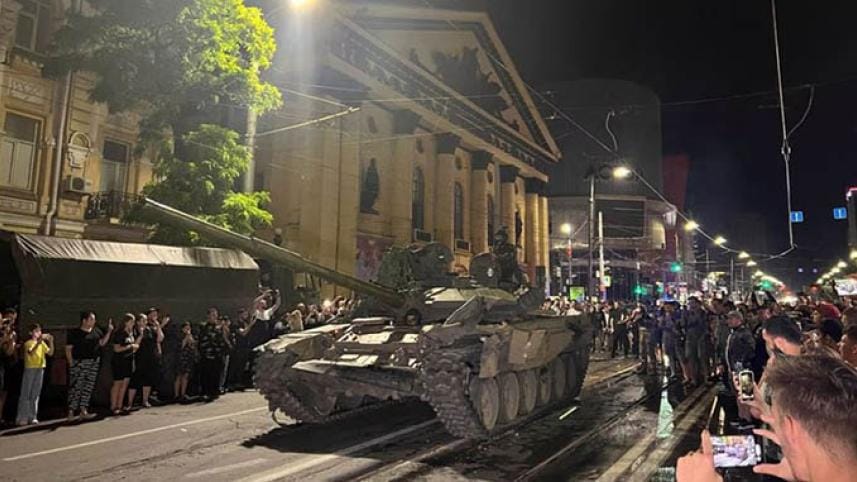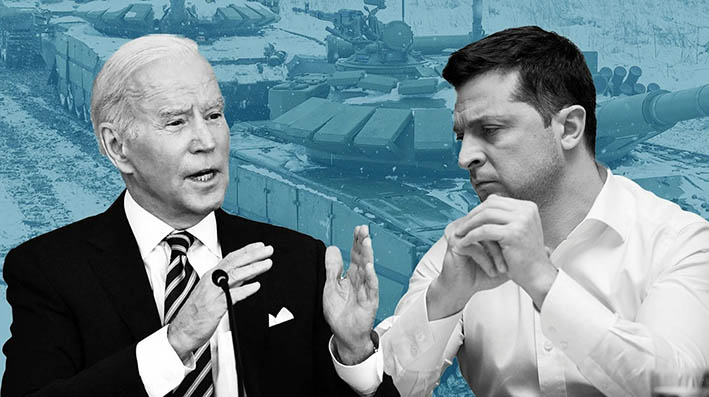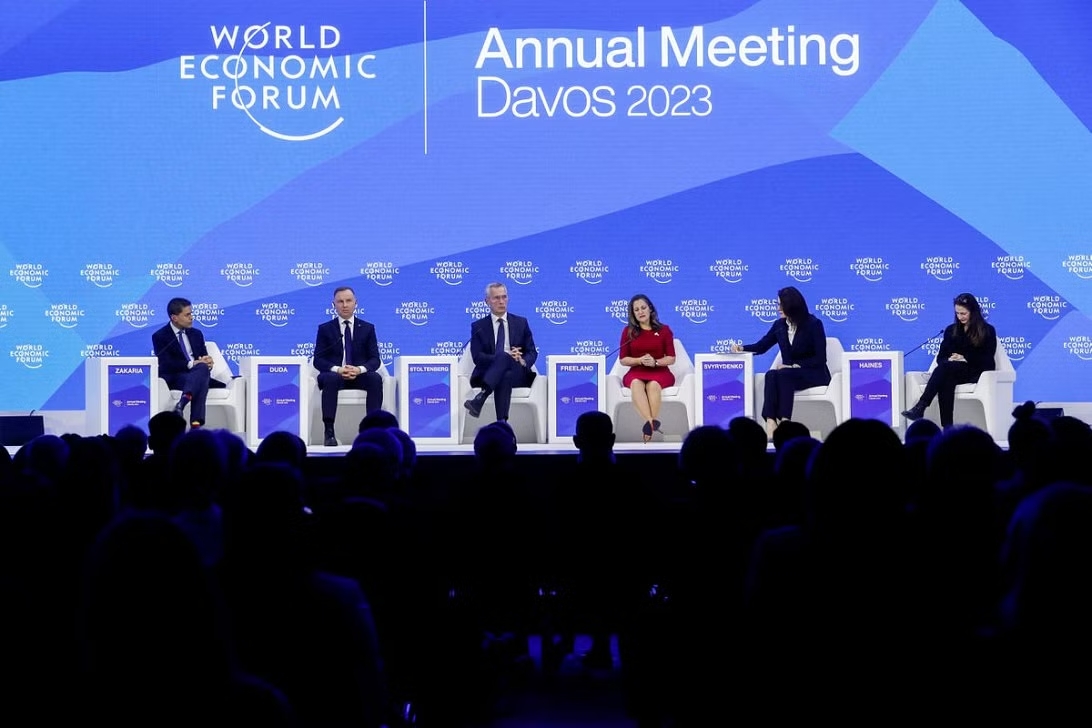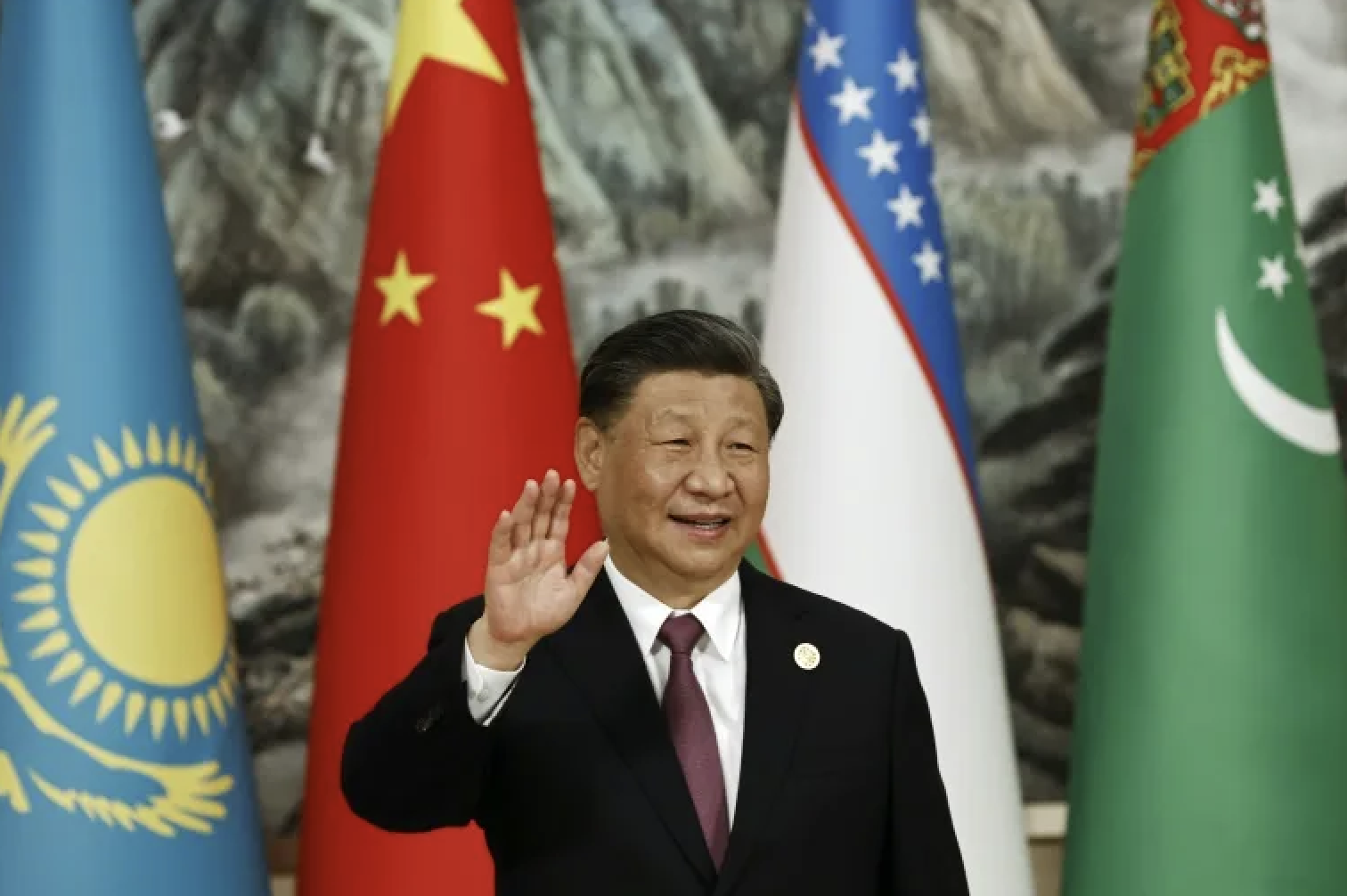Mutiny in Russia: The drama of the absurd

The missing link between the Wagner mutiny and its abrupt end in Putin's Russia on June 24 this year is yet to be unraveled. The Wagner mercenaries led by Yevgeny Prigozhin fought valiantly in Donetsk Oblast of Ukraine for several months and presented Putin with the only major war victory of 2023 by capturing Bakhmut. And then the same group made a mad dash from Ukraine to Russia, dubbed the "March for Justice" against Russian armed forces. It was a stunning development and was tracked by US intelligence operatives for a while.
This march of heavily armed mercenaries appears to have been thoughtfully planned and efficiently executed. They took control of the headquarters of the Russian southern command in Rostov-on-Don without firing a shot. The video obtained by Reuters showed an armed Prigozhin chatting with an unarmed Yunus Bek Yevkurov, the deputy defense minister of the Russian Federation, sitting on his right, and Army Lieutenant General Vladimir Alekseyev, sitting on his left on benches in the army headquarters.
The Wagner mercenaries quickly passed Voronezh and Lipetsk without resistance by the Russian army except military helicopters firing on them once. They came within 124 miles of Moscow along highway M4.
During Wagner's rapid advancement towards Moscow, Yevgeny Prigozhin issued calls to the Russian regular army to join his "March for Justice." The Russian army neither joined him nor put up any fight against him. During these chaotic times, the rumour mill kept running nonstop for days. Putin and his elite inner circles reportedly flew out of Moscow in droves. In fact, President Putin, Defense Minister Shoigu, and Army Chief of Staff General Gerasimov were nowhere to be found. After several hours of a complete eclipse, Putin made a pre-recorded televised address accusing Prigozhin of treason and promising to crush the mutiny. He also signed an additional law empowering authorities to detain martial-law breakers for thirty days. The situation turned so dire that the Russian army-built trenches and put-up barricades on the southwest edge of Moscow, the possible entry points of the Wagner mutineers to densely populated areas of the city. Prigozhin took the army off-guard. The world witnessed the disarray and mismanagement of the Russian military, the fifth largest collection of active-duty military personnel in the world, in defending the homeland.
During this unprecedented crisis, US President Biden kept vigil on the rapidly developing events with his closest allies including leaders of France, Germany, and the UK. They affirmed their continuing support for the freedom struggle of Ukraine.
Finally, a peace deal between Putin and Prigozhin was brokered by Alexander Lukashenko, the President of Belarus. As per this deal, Prigozhin, together with his mercenaries would leave the military base of Rostov-on-Don and there would be no charges. Prigozhin would be exiled in Belarus, and the Wagner mercenaries would return to their bases. The mercenary fighters who were not in the march would be allowed to join the Russian army.
Who is this Yevgeny Prigozhin, whose mercenaries captured Bakhmut, and who criticised the Russian invasion of Ukraine before he started an armed mutiny? He is none other than one of the closest confidants of Putin. His notoriety as a criminal was well-documented in the USSR and Russian Federation. He spent nine years in Russian prison for theft, robbery, and fraud. He was also wanted by the FBI for illegal interference in the US Presidential election.
After his release from Russian prison in 1990, Prigozhin started his career as a hot-dog peddler in Saint Petersburg (formerly known as Leningrad), and later became a successful businessman having significant financial stakes in supermarkets and casinos. His business in gambling helped him to build a network with Vladimir Putin in the early nineties when Putin was the chairman of the board of casinos and gambling. Later, he got involved in the restaurant and catering business and, with government contracts, became rich. He became a confidant of Putin and won the catering contract to the Kremlin and earned the title "Putin's Chef." His net worth is about a billion dollars. With money, power, and a close relationship with Putin, Prigozhin founded the Wagner mercenary group in 2014 as his private army that could serve clandestine military operations for Putin where the Russian military could not be directly involved. This group joined with the separatists of the Donbas region of Ukraine since 2014. These neo-Nazi paramilitary forces are fighting proxy wars for Russia in many countries including Libya, Syria, Mozambique, Mali, the Central African Republic and Sudan. By doing so, Prigozhin was able to control gold and diamond mines, and other resources in Africa. Since the Russian invasion of 2022, the Wagner group has been active on the wide swath of battlefields in Ukraine. Recently, it completed a successful campaign in Bakhmut, and established itself as a formidable force for the Russian military adventures.
Then comes the terrible turn of events. Prigozhin, who was convicted as a thief, robber, and fraud, rose to power together with money and muscle under Putin's tutelage, turned out to be a low-level Frankenstein. On June 24, 2023, he was about to break the neck of Putin and his military commanders. This mutiny exposed the weakness of the Russian army and the dictator who controls it. The entire incident is nothing short of a drama of the absurd. Putin's grab on absolute power appears to be weakening. His military is in disarray. Only five thousand mercenaries' lightning dash towards Moscow, against a clueless and colossal Russian army, horrified Putin so much so that he saw the ghost of the 1917 Bolshevik revolution and the subsequent half-decade of devastating civil war lurking again in Russia.
This mutiny, that sprang from the unprovoked invasion of Ukraine, is taking a toll on Russia. The war is now spilling over to the Russian homeland by its own mercenaries to Rostov-on-Don, Voronezh, Lipetsk, and by guerrilla partisans to Volgogorod, Kremlin, and other important sites. It is hard to predict what is next. The drama of the absurd has multiple shades. Is it staged or is it a false flag operation? Did Putin and his "chef" collude so that Putin would be able to seize military leadership? Remember, his bodyguard regiment is two hundred thousand strong. In spite of that he, reportedly, suffers from a paranoid syndrome.
Why did the army not act against the mercenary forces except through a token attack by helicopters? Putin declared that Prigozhin' s actions were "armed mutiny" and "treason," and his "chef" suddenly aborted his coup and took shelter as an exile in the hands of Putin's closest foreign ally, Alexander Lukashenko, the President of Belarus. Who is going to look after Russian involvement via Wagner mercenaries in Asia and Africa? Who will continue to support Wagner fighters, financially? What fate awaits Prigozhin? How soon will he be eliminated like many others who showed disloyalty to Putin? What will the state of Putin's hubris descend to in response to his "chef" in charting a deal? Did the co-conspirators of Prigozhin in Moscow, if any, fail to act? Will they be exposed and punished, or will they strike back at an opportune moment in future? These questions remain to be answered till the final curtains fall and end the Theatre of the Absurd. Time will tell if the terrified feeling of déjà vu from 1917's Bolshevik Revolution, articulated by Vladimir Putin in his pre-recorded speech during the armed mutiny, will actually occur again.
Dr Mostofa Sarwar, professor emeritus at the University of New Orleans, is former dean and ex-vice-chancellor of Delgado Community College and former commissioner of the governing board of Regional Transit Authority of New Orleans.




 For all latest news, follow The Daily Star's Google News channel.
For all latest news, follow The Daily Star's Google News channel. 


Comments